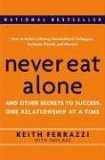About a month back, I have had the opportunity to attend Finggle’s first Social Media Marketing Workshop.

The one day workshop opens the doors and takes you into the world of social media, and how your business can leverage on it for marketing and outreach.
What I really loved about the course is that is a good balance between the platform specific techniques and the strategic concepts. Some of the concepts are potentially very powerful, like changing your “instructions” to “conversations”, identifying to leading social tribes, learning the 6 keys to writing content for social media, and the 3 key phases (and what activity to focus on in each phase) when marketing on any social platform.
Afterall, while Facebook and Twitter are now the hottest platforms where everybody is clamoring to put their business on, it is hard to say if this will stay the same 2 years from now. The social media and web community scene, in just the past decade, has seen many usurpations – since the good old days where we were still forming eCircles and the Friendster logo was still blue.
If you are reading the inside stories, you will know that many of these huge communities died or got bought over not because people didn’t like them, but because they didn’t make enough profit to sustain! So the platforms are always going to change, whether you like it or not!
Having a good social media marketing master plan is essential.
You need to go where your target audience is, and learn the technical stuff quickly so you can focus on building your tribe, rather than spend time beautifying your profile.
So if you are looking to get your business started on social media, you need to choose a social media workshop that gets you to think about your master plan and has enough material on the strategic concepts, rather and one that just teaches you how to set up a Facebook account and fan page.
Makes sense?

 I gave the piece of software a go. Well, I really liked the software, but there are some way Plaxo works that does not suit me very well.
I gave the piece of software a go. Well, I really liked the software, but there are some way Plaxo works that does not suit me very well. ) from my currently typed in list of about 300 contacts, who are also using the same service, and for some, I got to know their new phone numbers now, when I originally only knew only their email address.
) from my currently typed in list of about 300 contacts, who are also using the same service, and for some, I got to know their new phone numbers now, when I originally only knew only their email address.